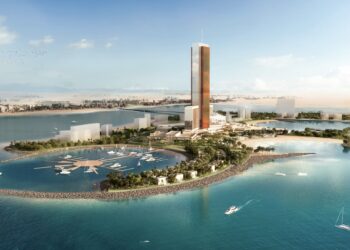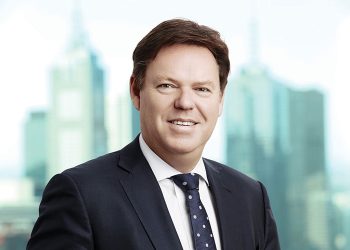“I don’t know if it’s a squall or if we’re in the rainy season,” Steve Wynn said in referring to the VIP slump that is dragging down revenues market-wide in Macau this year.
He made the remark during the company’s third quarter conference call with analysts eager for some insight into how much longer the slump will last.
On that score, though, Mr Wynn had no firm answer. Nobody else knows either.
“Things happen in China on their own pace and on its own time,” the chairman and CEO of Wynn Resorts and its Wynn Macau subsidiary observed. “It’s interesting to see how the business community responds to the central government. They are very responsive to the mood of the central government.”
Right now that mood has big-spending gamblers from the mainland curbing their lavish bets in Macau’s private baccarat rooms. Revenue from this credit-fueled VIP play, which historically accounts for upwards of 65% of the market’s world-leading annual haul, has fallen year on year every month since May, cooled by a number of factors—the main one an aggressive campaign by the Communist Party to root out the corruption and graft in high places that is endemic to the country.
It “has put a lot of wealthy businessmen in the foxholes,” as Mr Wynn put it. “Everybody’s being very conservative at this moment.”
There are other factors:
Capital flight is reaching epidemic proportions, according to many China observers, and Beijing has not failed to take notice. That makes Macau more risky these days as a conduit for wealthy mainlanders anxious to move their cash into safe havens in the West through the shadow banking system operated by the market’s vaunted junkets.
The government also is cracking down on abuses of the outbound visa system, and that’s curtailing visits to the only place in China where casinos are legal.
Last but not least, the junket operators and promoters themselves, the linchpins of the trade, serving as its lenders, travel agents and concierges, are battling a financial crisis themselves now that more high rollers are staying away and liquidity tightens in response to China’s slowing economic growth.
Broadly, this played out at Wynn’s Wynn Macau and Encore resorts in the third quarter in a 17% decline in VIP rolling chip volume—which wasn’t as bad as the market’s aggregate decline of 19%, but it drove down revenue from the segment by 24% to HK$5.4 billion (US$693 million). But then the win rate came in at 2.78%, or toward the lower end of the expected range (it was 3.04% in Q3 2013), so luck also was a factor.
In all, operating revenues were down 5.6% year on year to HK$7.3 billion ($942 million).
But there are a lot of moving parts to Macau, and the fact that Wynn experienced only a 1.1% drop in property-level EBITDA during the period pointed up the company’s continued strength in high-limit cash play, known as “premium mass”. Mass-market table revenue in total was up 36% year on year, well out-pacing the 16% growth market-wide.
This being far more profitable play dollar for dollar than VIP, the two properties ran at a robust combined operating margin of 34%.
“In the context of Wynn Macau being a capacity-constrained property with little or no hotel room product being made available to non-high-end customers we would consider the property’s growth rates to be impressive and indicative that the various initiatives put in place are paying dividends,” investment brokerage Union Gaming Research Macau said in a client note.
“Ultimately, we believe that Wynn Macau remains one of the most aspirational properties in Macau and will always draw an outsized share of premium mass play as witnessed by the reported hold rate exceeding 51% in the quarter,” the firm added.
Certainly the company had no problem filling its 1,008 rooms in Wynn Macau and Encore, reporting 98.5% occupancy for the quarter at an average daily rate of US$327.
Players pumped some $1.4 billion into the company’s 588 slot machines during the period, an increase of 23% year on year. The average win per machine was a whopping $1,358 per day, the highest ever for the company and by far the highest in Macau. Total slot and ETG revenue was up 32%.
“We would attribute some of this out-performance to good luck,” said UGRM, “although we believe most of the upside was driven by broad-based strong demand.”
That of course bodes well for the company’s US$4 billion, 1,700-room Wynn Palace slated to open on Cotai on budget and on time in the first half of 2016.
Mr Wynn made it a point on the conference call to say he remains “bullish” on Macau.
As well he should be.



































